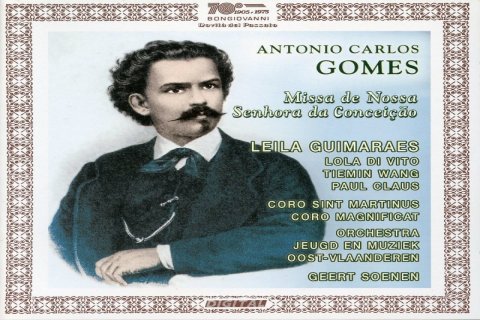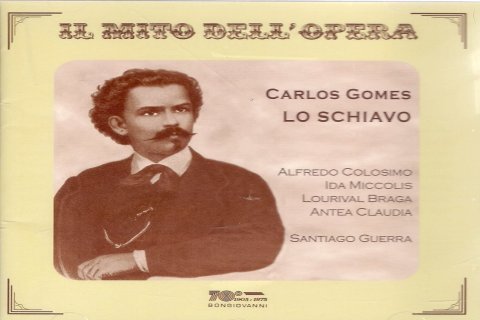Carlos Gomes

Carlos Gomes: The Celebrated Brazilian Composer
Carlos Gomes (July 11, 1836 – September 16, 1896) was a renowned Brazilian composer, conductor, and pianist. He achieved international fame for his operas, which showcased Brazilian themes and incorporated elements of both European and Brazilian music. Gomes's contributions to the development of Brazilian music are significant, and he is considered one of the most important figures in Brazilian classical music history.
Early Life and Education: Carlos Gomes was born in Campinas, São Paulo, Brazil. From an early age, he displayed a passion for music and began studying piano and composition. As a young man, Gomes traveled to Italy to further his musical education, studying at the Milan Conservatory under the guidance of esteemed maestros such as Lauro Rossi and Alberto Mazzucato.
Operatic Career: Gomes's operatic career took off in the mid-1860s with the premiere of his first opera, "A Noite do Castelo" (1861). This was followed by a series of successful operas, including "Joana de Flandres" (1863), "Guarany" (1870), and "O Escravo" (1889). Gomes's operas were notable for their melodic beauty, dramatic intensity, and incorporation of Brazilian musical elements, such as indigenous rhythms and folk melodies.
"Il Guarany": A Masterpiece of Brazilian Opera: Among Gomes's operas, "Il Guarany" stands as his magnum opus. Composed in 1870, "Il Guarany" is based on José de Alencar's novel of the same name. The opera tells the story of Peri, a Guarani Indian, and his love for Ceci, the daughter of a Portuguese colonist. Set against the backdrop of the Brazilian rainforest, the opera features lush orchestration, memorable arias, and powerful choruses.
International Recognition: Gomes's operas gained international recognition during his lifetime. His works were performed in prestigious opera houses across Europe, including the Teatro alla Scala in Milan and the Royal Opera House in London. Gomes's music was praised for its originality, its fusion of European and Brazilian musical traditions, and its ability to convey the beauty and grandeur of his native Brazil.
Legacy and Influence: Carlos Gomes's contributions to Brazilian music are profound and enduring. As a composer, he elevated Brazilian music to an international level, showcasing its unique character and vitality. His operas remain popular in Brazil and are frequently performed in concert halls and opera houses around the world. Gomes's music continues to inspire and influence contemporary Brazilian composers, and his legacy as a trailblazing Brazilian composer remains firmly intact.
Conclusion: Carlos Gomes's life and career exemplify the power of music to transcend boundaries and cultures. His operas, filled with melodic beauty, dramatic intensity, and Brazilian flair, captivated audiences worldwide and cemented his place as one of the most celebrated composers of the 19th century. Gomes's legacy continues to inspire generations of musicians and music lovers, and his music remains a testament to the vibrancy and diversity of Brazilian culture.






